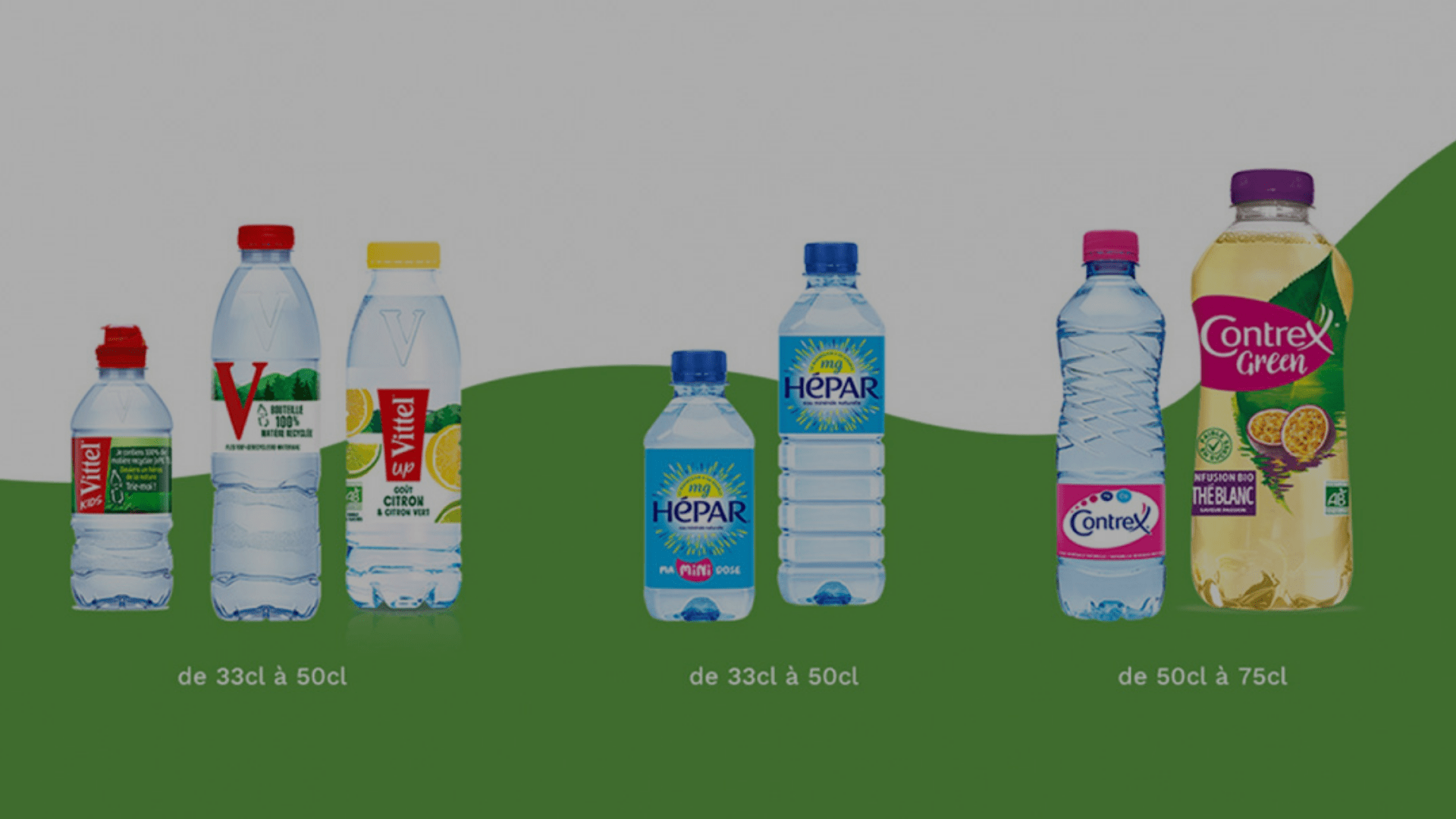The Number One firm on the French bottled-water market is launching two packaging innovations using bottles made from recycled plastic.
By 2040, single-use plastics will be banned in France. That ban will lead to change in the way we consume and especially in the way we produce.
After Volvic and Évian, Nestlé Waters, the leader in France’s bottled-water market, has announced that from now on, the 33 and 50 cl. bottles for Vittel, Hepar and Contrex will be made out of 100%-recycled PET (polyethylene terephthalate) plastic.
Alongside that measure, by the end of the year, the rest of the mineral-water range for all three of those brands will include 35% recycled material.
Those changes have been made possible thanks to major industrial investment – over €24 million since 2019 – in modernizing the corporation’s plant in the Vosges. The bottling site also houses Nestlé Waters’ global R&D center.
– Endlessly Recycling PET
“When you know that one ton of recycled plastic allows you to save the equivalent of two tons of CO2, this approach is key to our contribution to the fight against climate change, as well as to reaching our goal of making those three brands carbon neutral in the very short term,”
Françoise Bresson, director of CSR and communication at Nestlé Waters France, has stated.
Along with integrating recycled plastic, Nestlé Waters is also investing heavily in research and development for innovative packaging. Starting in July, Vittel will be consumer testing their new Hybrid bottle. The container is made from two different materials. An ultra-thin plastic bottle made from 100% recycled content is encased in two inter-locking natural-cellulose-fiber shells, also 100% recycled. In this way, the 1-liter bottle contains half the plastic of a conventional one.
The firm is also contributing to the French start-up Carbios, which focuses on devising new approaches to enzymatic plastic recycling and to being able to recycle PET indefinitely. Because as things now stand, transparent plastic can only be recycled seven or eight times.
More information about agri-food industry in our news!
